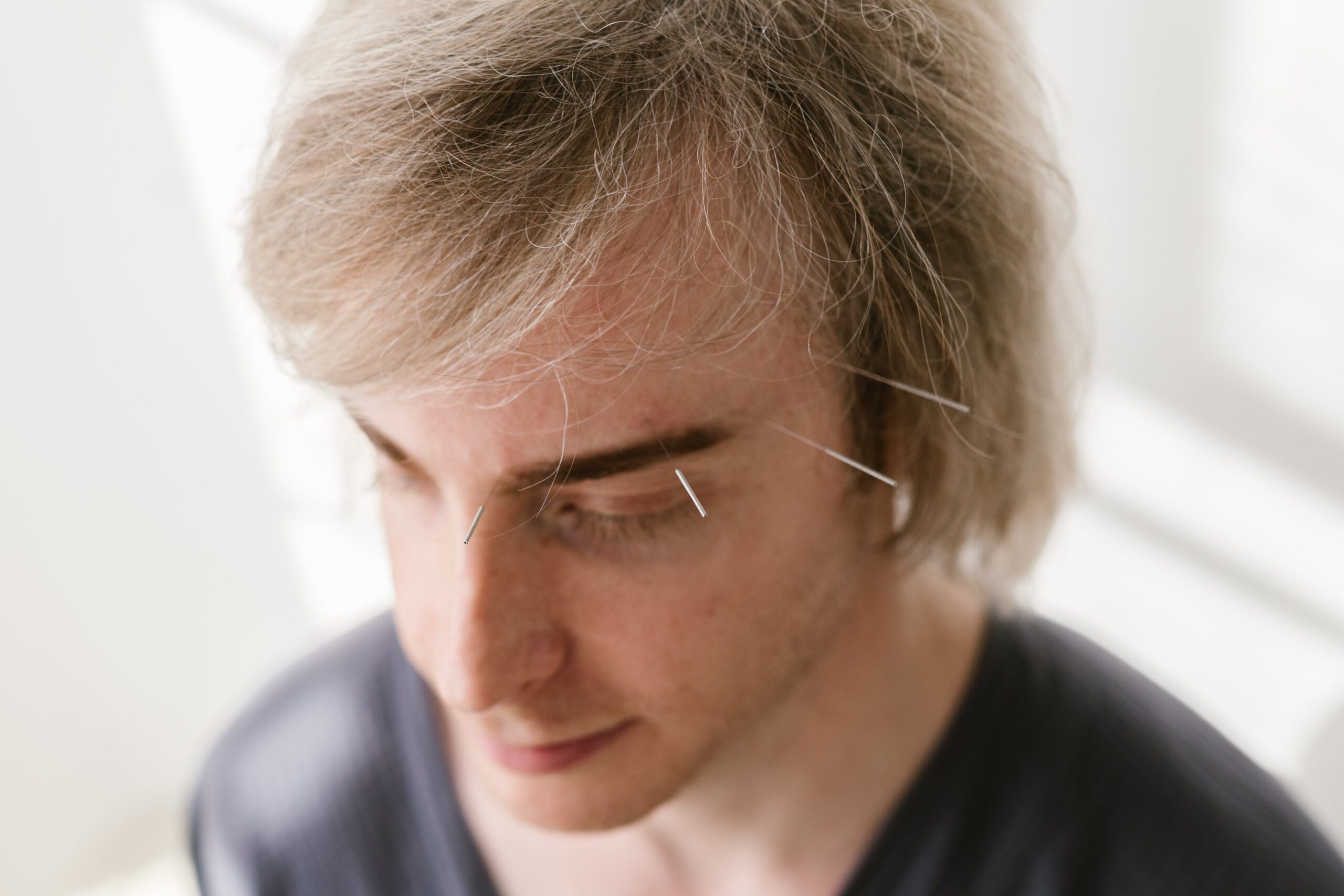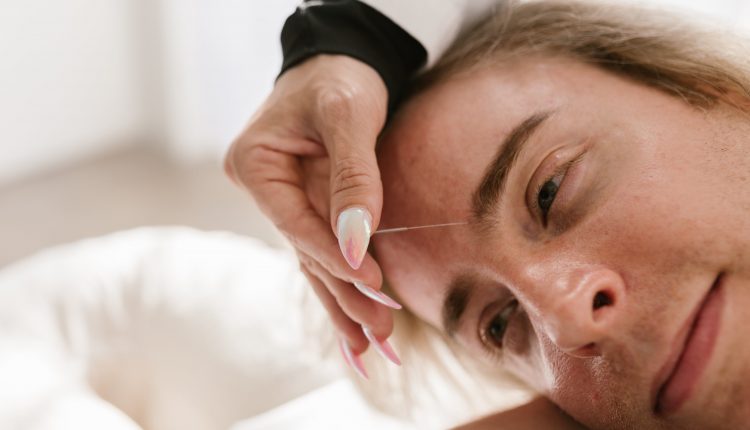THE BENEFITS OF ACUPUNCTURE FOR PERIPHERAL NEUROPATHY

There are a lot of different explanations leading up to what exactly peripheral neuropathy is: its causes, symptoms, and most significantly, its treatment. The word peripheral comes from the Greek word “periphereia” which means circumference, “neuron” also from the Greek word neuron for nerves and “pathy” from pathos meaning disease. Therefore the definition of peripheral neuropathy is the disease of the nerves found in the circumference of the body, or more specifically, the nerves found near the surface of the body.
Peripheral neuritis, which is another name for this illness, usually affects the nerves that work to relay information from the central processing unit, the brain, to the different parts of the body — such as the major organs, skin, and joints. Normally, when somebody slaps you on your arm, nerve endings located there – like the ulnar nerve – will send signals to the brain that there was the introduction of a certain stimulus which causes pain. The brain sends back out this information to the effected body part and will subsequently cause you to jerk your arm out of the way of the pain-causing stimuli. But with peripheral neuropathies, like the distal symmetric neuropathy usually seen in diabetic neuropathy, you will not feel anything but a possiblty a numbness or tingling. And since no sensation is felt, the injury will become unnoticed. This is why diabetic patients tend to lose their extremities to amputation. In view of the fact that they don’t feel any sensation when they are injured, these injuries involving the extremities should be treated at once or the infection may spread to the bone and other nearby areas.
Peripheral neuropathy can be classified into several categories. Depending on the type of nerve affected, it is classified as motor, sensory, sensorimotor, or autonomic. On the number of nerves affected, it is either a mononeuropathy or a polyneuropathy. Genes can also be part of the affected list, since peripheral neuropathy can also be inherited. Diseases such as diabetes, AIDS, lupus erythematosus, rheumatoid arthritis, hepatitis, and diphtheria, as well being exposed to toxic compounds like solvents, glue, nitrous oxide, and heavy metals can cause peripheral neuropathies. Even the drugs taken to treat cancer and AIDS may cause a neuropathy.
A neuropathy originating form pressure on a nerve can occur when a certain position is held for a long periods of time or specific actions are done repetitively over a long period of time. This causes a pressure on the nerves — such as the radian nerve in the hand — due to its location in the tight compartment of the hand, leading to undue pressure which is what we call Carpal Tunnel Syndrome. The ulnar nerve also gets pressure from sports related injuries such as tennis, when the nerve gets pressure from the constant movement of the elbow. Excessive alcohol intake can also lead to peripheral neuropathies because of the toxins it releases into the blood in the form of free radicals. These free radicals attach themselves to the cells and alter their chemical substances, which in turn produces abnormal effects on the body.
Most f. a. q. ‘s on peripheral neuropathy pertain to the symptoms, which are dependent on the type of nerve hit; either just one type or a combination of types. Some common signs of peripheral neuropathy wherein the motor nerve fibers are affected include weak muscle control, loss of sensation and muscle tone, up to the more serious ones like difficulty in moving, breathing and swallowing, lack of dexterity, blurred vision, dizziness, urinary incontinence and even impotence in males. When sensory motors are affected, the signs present are numbness and tingling sensations, burning sensations, loss of vibration sense, loss of position sense, loss of coordination sense, and muscle weakness. Symptoms pertaining to damage to autonomic nerves are centered on the autonomic functions of blood pressure regulation, digestion, urination, and body temperature regulation.
If these symptoms are not heeded, further complications may take place. As seen in diabetics, damage to the nerves of the feet can lead to ulcers and ultimately gangrene if the diabetic neuropathy is left untreated and neglected. It may also spread to other major organ systems and affect their function. For example, if the nerves affecting the digestive system are damaged, the stomach may sluggishly move food to the intestines causing constant nausea, vomiting and bloating, constipation or diarrhea. Urinary problems may also crop up aside from low blood pressure, impotence, depression, weight loss and partial or complete paralysis.
There are several ways to treat peripheral neuropathy. First is to identify the cause of the nerve damage and to consequently manage it by providing replenishment to the deficiencies, like giving vitamin B12 if the cause is a lack of it; lowering blood glucose levels and maintaining it if the cause is diabetes; vitamin supplements and daily injections to last your lifetime for neuropathies caused by pernicious anemia; treating the immune response in autoimmune disorders; avoiding further exposure and halting any medication that causes damage to the nerves; eliminating the external pressure on the nerve that is causing its destruction by using ergonomic chairs or machines to ease the tension in the problem area, hands or back, changing the way of holding instruments or tools, and even corrective surgery.
After the identification of the primary cause of the neuropathy and ways on how to cure it, the next step is to help alleviate the debilitating symptoms. For mild to moderate pain, medications are prescribed such as over-the-counter pain relievers like aspirin, acetaminophen, ibuprofen and nonsteroidal anti-inflammatory drugs. Drugs used for seizure attacks can also be prescribed for jabbing pain. Examples of this are gabapentin, carbamazepine, and phenytoin. For non-ingestion of drugs, a lidocaine patch is suggested as well as other topical anesthetics like capsaicin. Tricyclic antidepressants are noted to ease mild to moderate symptoms since they interfere with the chemical processes in the brain that allow you to feel pain. Some examples are nortriptyline, desipramine, and imipramine. Selective serotonin reuptake inhibitors such as paroxetine and fluoxetine hydrochloride, commonly known as Prozac, may also help diminish the pain caused by peripheral neuropathy.
For the patients who are averse at introducing drugs into the body, they have several options to choose from for their treatment. Transcutaneous electrical nerve stimulation (TENS) is a therapy that makes use of the application of small electrical impulses on the skin, aimed at intercepting pain signals at specific nerve pathways. It is safe and painless, although it is not recommended for all patients. Another therapy is the biofeedback therapy which employs the use of a machine to teach patients on how to control specific body responses, in order to be able to decrease the pain until you can independently control it. Acupuncture is also suggested since it has already received rave reviews on its effectiveness in treating chronic pain — after several sessions. Some also opt for other ways to relax the body, either willingly or by hypnosis since the tension in the body aggravates the symptoms and feelings of pain.
A sound mind resides in a sound body. For the body to be fit, it is essential for a person to get proper rest, exercise regularly, maintain a well-balanced and nutritious diet, get six to eight hours of sleep and keep away from habits like smoking, drinking and eating fast foods. When a person experiences numbness or weakness in his or her hands, legs or other parts of the body or demonstrates impaired reflexes, this may be a sign of peripheral neuropathy.
Peripheral neuropathy can affect any or all of the nerve groups, including sensory nerves, motor nerves and autonomic nerves. People with peripheral neuropathy may show the following signs:
• Numbness and tingling sensations in the hands or feet,
• Acute stabbing pain
• Drop in the blood pressure
• Heaviness in arms and legs
• Weakness of the hands and legs
Causes of Peripheral Neuropathy
Various factors leading to nerve damage are enumerated below-
• Pinched nerves due to herniated disc or muscle spasm
• Glucose intolerance
• Reynaud’s disease
• Lupus
• Diabetes
• Kidney disorders
• Hypothyroidism
• Vitamin deficiency, especially of C, B-1, B-6, or B-12
Consulting a neurologist or neurosurgeon who would assess your present health condition and diagnose your nervous disorder would help you get a picture of your prognosis.
Treatment of Peripheral Neuropathy
Before finalizing the right course of treatment for peripheral neuropathy, it is essential to find out the exact cause that has led to this disorder. If it is caused by a vitamin deficiency, then a change in the diet along with vitamin therapy would be helpful. Likewise, if the nerve damage is due to alcohol abuse or taking a certain medication or toxic substance, then avoiding the substance can restore the health of nerves. One main factor contributing to nerve inflammation is a high sugar and high salt diet. Even you do not have diabetes, avoiding processed food and sweets will save your nerve function, so that, when you reach 90 years old, you still can walk and think normally.
Alternative Medical therapy for Peripheral Neuropathy
Acupuncture has been found to be highly effective for patients with peripheral neuropathy. Besides the pain relief, patients also experience a marked improvement in nerve conduction after completing the acupuncture course specified by the acupuncturist. The number of treatments depends on each person’s medical condition; for a chronic condition, a few months will be required to recover the nerve function.
Researchers have revealed that electro-acupuncture has helped regenerate nerve cells in rats suffering from spinal cord injuries. There are also human studies that have indicated that acupuncture can bring back the normal sensation of the nerves in the hands and feet. Furthermore, acupuncture can help the hands regain their strength. If after a nerve injury, you still have developed muscle atrophy after doing physical therapy for a few months, it is the right time to start acupuncture treatment to help the nerves regenerate as soon as possible.
Nervous disorders that acupuncture can correct
Whether it is alcohol, tobacco or junk food addiction, or it is Bell’s palsy, dementia, headache or a migraine or stroke, getting acupuncture treatment from a specialist and completing a 12 to 24 course of treatments would provide sufficient blood flow to the nerves. If diabetes is the major cause of nerve damage, then acupuncture treatment can also prevent a spike in blood sugar level induced by sugar intake and will help stabilize the sugar level in the blood.
Complications of peripheral neuropathy include falls, infection, burns and skin trauma. Besides getting specialized acupuncture treatment, patients should make healthy choices related to their food, exercise and lifestyle. This would help them minimize the risk factors and prevent any further nerve damage, thereby enabling them to enjoy a long and healthy life.
Some of the important things you need to take care are as follows:
• Include fruits, green vegetables, whole grain and protein in your diet for healthy nerves
• Exercise 30 minutes-1 hour three times a week to improve the circulation to the peripheral nerves
• Avoid smoking or excess drinking, spicy food, exposure to drugs or toxic chemicals.


Comments are closed.